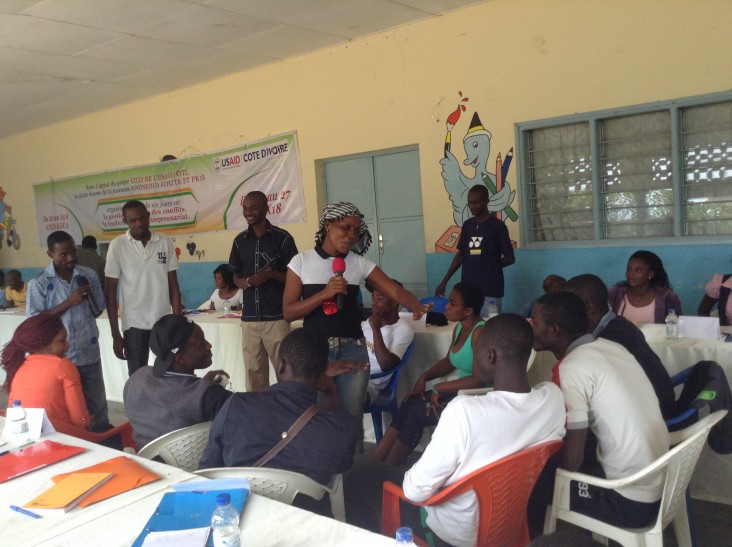
Dec. 2014—Côte d'Ivoire’s post-election crisis in 2010 and 2011 pitted supporters of former President Laurent Gbagbo against those of current President Alassane Ouattara. The two villages of Anokoua Kouté and PK18 serve as prime examples of this persistent divide. During the crisis, Anokoua Kouté supported Gbagbo and PK18 supported Ouattara, reflecting the ethnic divide between the neighborhoods.
The two villages are located in Abobo, the most densely populated commune of Abidjan, and among the areas hardest hit by the crisis.
Three years later, youth from the two villages continue to harbor deep-seated animosity as a result of the violence. Politicians manipulated unemployed youth from both villages into committing acts of aggression. With the country gearing up for the next presidential elections in 2015, tensions are again on the rise.
“As I am talking to you right now, I am afraid of what could happen if we do not overcome our differences,” said Djama Jean-Jacques, a 35-year-old resident of Anokoua Kouté.
In September 2014, USAID’s Office of Transition Initiatives brought together 48 youth, including 12 women, in a series of activities, including a training workshop, youth-led village meetings, and a soccer tournament. During the workshop, participants learned how to resolve conflicts peacefully by using leadership and entrepreneurship. The activities also provided them with tools to overcome their vulnerability to manipulation by local political leaders.
Participating youth are now able to reflect on the past and the importance of avoiding destructive behavior in the future. “I took part in the fighting [following the 2010 elections] because we had received clear instructions to fight to take power. Today, I am regretting my actions,” said one of the participants, who preferred not to be identified.
Participants stated that the trainings have significantly improved social cohesion in their community. “We have so much more affinity for one another now,” said Aicha Koné, 22, from PK18.
“There were times when you couldn’t see any young people from Anokoua over here, but now they are here in front of us—speaking of living together in peace!” said an elder from PK18 on the fringes of a village meeting. “This is really to be encouraged!”
LINKS







Comment
Make a general inquiry or suggest an improvement.